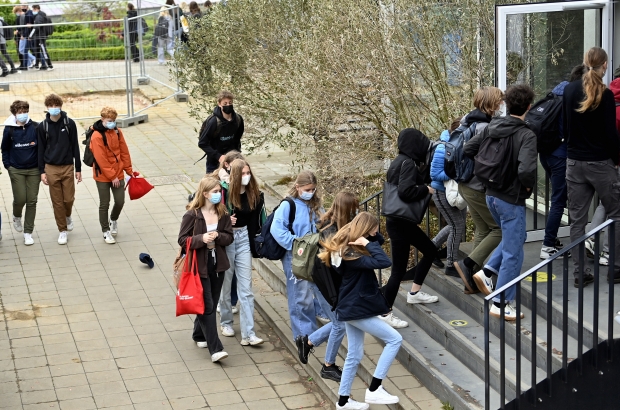- Daily & Weekly newsletters
- Buy & download The Bulletin
- Comment on our articles
Seven in 10 children avoid using school toilets, survey finds
An estimated seven out of 10 children in Belgium avoid using the toilets at their schools because of the unsanitary conditions, a lack of privacy and a fear of embarrassment, a survey has found.
While the average child needs to use the toilet between four and seven times a day, a majority of children are choosing to simply "hold it in" while at school.
Findings from the Geberit/iVox study showed that in 25% of cases, there is no separation by gender for children's toilets, and 44% of the toilets were missing a proper toilet seat and lid.
There were also reportedly no full-height partitions in 50% of cases and no sinks or soap in 15%.
Pediatrician Barbara Abramowicz told RTBF that children avoiding their school’s toilets is hardly a new issue. “Who hasn’t ever held back from going to the toilet at school?” she said.
“Whether it's a childhood memory or a current reality experienced by your child, the hygiene and quality of sanitary facilities in Belgian schools raises questions. Unfortunately, I am not surprised by the extent of the problem, which apparently does not improve over the years.”
Abramowicz said the lack of suitable toilets for children has massive consequences, both in terms of health and mental wellbeing.
“I still see – and have seen for over 30 years – urinary tract infections, or stool retention leading to catastrophic constipation, and vulvitis problems,” Abramowicz explained.
“And recent studies prove this can cause organic and psychological problems for the child. It is therefore a real public health problem.”
Potential solutions being brought forward include raising awareness about the extent and the effects of the issue, including among ministers of education, school leadership, teachers and staff, and parents and students.
But while experts such as Abramowicz say that consultation between all these different parties is the only way to find a working solution, ultimately, public authorities must provide the means.
Some proposed objectives include better respect for intimacy through the separation of toilets by gender, greater partitions between cubicles to allow for better privacy, proper locks on doors, higher ventilation standards, thorough and regular cleaning of toilet facilities, and the provision of basic items such as toilet paper, soap, means to dry hands and waste bins.
A public campaign for promoting better health at school initiated by the BYX Fund - which is managed by the King Baudouin Foundation - was launched in 2015 and has included efforts to improve restrooms.
Called "Ne tournons pas autour du pot", the programme, carried out in partnership with ASBL Question Santé, provided support to 317 schools in refurbishing their toilet facilities.
When it comes to specific actions that can be taken, some of those proposed include raising awareness among students through posters and other means, having toilet supervisors present to ensure proper hygiene and the creation of charters or guidelines for the proper maintenance of sanitary conditions.
“Access to toilets is not a simple desire or a luxury: it is a primary need,” said Abramowicz.
“If we ourselves start to respect children in the environments where they are educated, it would increase the chances of them entering into a different, more positive mindset. It's a virtuous cycle, which I urge you and invite you collectively to enter on the occasion of this consultation on the state of sanitation in schools.”



















